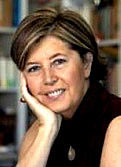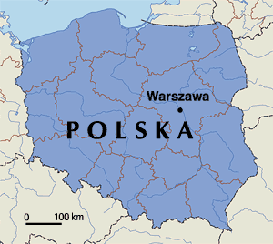According to president of the Committee of the Regions Mercedes Bresso in the  , universities are drivers of regional development and innovation, and should be encouraged to set up partnerships with businesses through joint public and private innovation funds and in addition to using Structural Funds for regional development more strategically, loans, venture capital and credits should be more easily accessible to small companies to boost technology transfer.
, universities are drivers of regional development and innovation, and should be encouraged to set up partnerships with businesses through joint public and private innovation funds and in addition to using Structural Funds for regional development more strategically, loans, venture capital and credits should be more easily accessible to small companies to boost technology transfer.
Category / EU
Welcome to the EU section of the blog! Emily Cieciura (BU’s Research Facilitator – EU and International), Jo Garrad (Funding Development Manager) and Dianne Goodman (Funding Development Co-ordinator) together try to take the pain out of finding and applying for EU funding by horizon scanning many sources and placing the most important information on this page.
We blog as often as possible on everything from calls for proposals and partner searches, to networking event opportunities, all the latest on Horizon 2020 and international funding. We also use the blog to disseminate information on EUADS (BU’s EU academic training initiative), how to write brilliant proposals, how to find partners and other top tips!
The advantages of winning EU funding: BU’s Sherry Jeary shares her experiences

“I spent the first three months of this year sitting in REC, a software engineering company in Wroclaw, Poland doing  the job of a Software Engineer. So what is unusual about that? I am a Senior Lecturer in Software Engineering and have, for the first time in my career, had complete immersion in a company doing the subject I research, talk to students about, enthuse with colleagues about and generally bore my outside friends about. As part of the INFER project headed up by Bogdan Gabrys which is creating a complex, predictive, adaptive system, I have had an opportunity that rarely comes an academics way. I got to live in Wroclaw, had fun getting about in a beautiful part of Poland and really enjoyed being among the Polish people. ( I would also recommend the Bison grass Vodka J).
the job of a Software Engineer. So what is unusual about that? I am a Senior Lecturer in Software Engineering and have, for the first time in my career, had complete immersion in a company doing the subject I research, talk to students about, enthuse with colleagues about and generally bore my outside friends about. As part of the INFER project headed up by Bogdan Gabrys which is creating a complex, predictive, adaptive system, I have had an opportunity that rarely comes an academics way. I got to live in Wroclaw, had fun getting about in a beautiful part of Poland and really enjoyed being among the Polish people. ( I would also recommend the Bison grass Vodka J).
As a result I have already written a conference paper and had it accepted whilst a journal paper will follow. I will have two very useful case studies which I can discuss with colleagues and have learnt a great deal about the processes involved in the company (my particular research interest). I am advising the company on the ways that they can improve what they are doing – so it is a two way thing. Finally, as a result of the project my network  has expanded considerably with both academics and industrialists. I can see how I may need change my teaching strategy to respond to what is happening in the real world and I am well placed to consider applying for funding with my company colleagues in the future to continue the work I have started.
has expanded considerably with both academics and industrialists. I can see how I may need change my teaching strategy to respond to what is happening in the real world and I am well placed to consider applying for funding with my company colleagues in the future to continue the work I have started.
At a recent meeting discussing our strategy for BU’s engagement with Europe, I was surprised to hear that many academics were either not interested or were nervous of starting out in the EU. I agreed to write about my current journey. If you work at BU and want to find out more, let me know. I am happy to help.”
Another Marie Curie success story
 Three Marie Curie calls are currently open, and following our blogpost by Rudy Gozlan on how to successfully win a Marie Curie grant, we also wanted to highlight Prof Bogdan Gabrys (DEC) success through this scheme.
Three Marie Curie calls are currently open, and following our blogpost by Rudy Gozlan on how to successfully win a Marie Curie grant, we also wanted to highlight Prof Bogdan Gabrys (DEC) success through this scheme.
 Bogdan is coordinating the INFER project involving 25 academics from organisations in three different countries. INFER stands for Computational Intelligence Platform for Evolving and Robust Predictive Systems and is a project funded by the European Commission within the Marie Curie Industry and Academia Partnerships & Pathways (IAPP) programme, with a runtime from July 2010 until June 2014.
Bogdan is coordinating the INFER project involving 25 academics from organisations in three different countries. INFER stands for Computational Intelligence Platform for Evolving and Robust Predictive Systems and is a project funded by the European Commission within the Marie Curie Industry and Academia Partnerships & Pathways (IAPP) programme, with a runtime from July 2010 until June 2014.
EU – UK Photonics Event
 This event on July 6th, London will include a talk by Deputy Head of DG Info and will offer the opportunity for delegates to ‘pitch’ ideas.
This event on July 6th, London will include a talk by Deputy Head of DG Info and will offer the opportunity for delegates to ‘pitch’ ideas.
Want to gain a Marie Curie Fellowship? Our 4-times winner shares his experience
 Three EC Marie Curie calls are currently open and having successful won a whopping fourMarie Curie fellowship awards, BU’s Professor Rudy Gozlan (ApSci) shares the secret to success:
Three EC Marie Curie calls are currently open and having successful won a whopping fourMarie Curie fellowship awards, BU’s Professor Rudy Gozlan (ApSci) shares the secret to success:
 I secured my first Marie Curie fellow in 2003 and since have repeated it four times with the latest fellow programmed to join Bournemouth University in September 2011 (Polish researcher). What I have noticed in the last few years is a sharp increase in the number of applicants as a result of the level of competition. It is not good enough to have a very good candidate and a very good proposal, you will need to reach excellence in both the candidate and the proposal as only scores above 91% have a real chance of being funded. Having said that, if you secure a fellowship you are guaranteed success during the two years of the fellowship as these candidates need little supervision (they are the elite of Europe after all) and they provide an extremely effective vector for mentoring among your PhD student community. In addition, once they return home they often secure top positions which will help you building an effective network of collaborators for further EU research proposals. So, if you are planning to secure a MCF where do you start?
I secured my first Marie Curie fellow in 2003 and since have repeated it four times with the latest fellow programmed to join Bournemouth University in September 2011 (Polish researcher). What I have noticed in the last few years is a sharp increase in the number of applicants as a result of the level of competition. It is not good enough to have a very good candidate and a very good proposal, you will need to reach excellence in both the candidate and the proposal as only scores above 91% have a real chance of being funded. Having said that, if you secure a fellowship you are guaranteed success during the two years of the fellowship as these candidates need little supervision (they are the elite of Europe after all) and they provide an extremely effective vector for mentoring among your PhD student community. In addition, once they return home they often secure top positions which will help you building an effective network of collaborators for further EU research proposals. So, if you are planning to secure a MCF where do you start?
First, you need to find a successful candidate. They are many ways you could do this, through international conferences when you spot a good talk from a junior researcher, you can approach them and discuss whether they have considered doing a post-doc. Also, you can contact your colleagues in other EU institutions and ask whether they have a good PhD student near completion and offer to develop a collaborative Marie Curie Fellowship (MCF) application, including your colleague in the steering group. Colleagues always like the opportunity to be involved in research excellence and know they would then have a good case for recruiting their student after a two year MCF. However, recruiting the student is only the first step of the process; you now need to develop an excellent proposal. An excellent proposal is not only an excellent scientific case; all categories such as “Impact”, “Training” etc are extremely important. Over the years we have established a template which we improve from year to year (I can provide some of the successful applications if needed). You cannot afford to rushed a single criteria of the application as this will make the difference between being funded (>91%) and failing.
 Finally, these proposals are extremely time consuming so it is not something you decide at the last minute. I generally approach my potential students in December (although I generally have a pretty good idea of who I want) and start drafting the proposal in March. I personally never let the candidates develop their own proposal as I often have a better understanding of what could be funded and what could not. It has, for example, to be within your expertise but it also needs to complement the candidates own expertise while still not being too far away from his/her existing area of research. The proposal needs to appear to provide the candidate with a new set of skills that will become relevant when (s)he returns home and help him/her secure a position. As such the proposal needs to clearly demonstrate how this MCF will bridge this skill gap. It is also important to secure a good supervisory team which will provide a guarantee of research quality and give confidence to the reviewers that the student will be in a leading research environment.
Finally, these proposals are extremely time consuming so it is not something you decide at the last minute. I generally approach my potential students in December (although I generally have a pretty good idea of who I want) and start drafting the proposal in March. I personally never let the candidates develop their own proposal as I often have a better understanding of what could be funded and what could not. It has, for example, to be within your expertise but it also needs to complement the candidates own expertise while still not being too far away from his/her existing area of research. The proposal needs to appear to provide the candidate with a new set of skills that will become relevant when (s)he returns home and help him/her secure a position. As such the proposal needs to clearly demonstrate how this MCF will bridge this skill gap. It is also important to secure a good supervisory team which will provide a guarantee of research quality and give confidence to the reviewers that the student will be in a leading research environment.
Finally, even if you were unsuccessful you shouldn’t ditch your proposal but rather resubmit it the following year with either a new candidate if the candidate received a poor mark (you need to be ruthless) or keep the candidate and carefully address the reviewers’ comments.
Finally, I will bid for another MCF this year with a Portuguese student so if you would like further tips get in touch, otherwise I wish you good luck.
There are currently three MCF calls open – read about them here. If you would like to discuss a possible submission to any of these calls, please contact Corrina Dickson in the Research Development Unit.
Templates available for EU Consortium Agreements
 The home page of the restyled IPR helpdesk now carries links to some Consortium Agreement templates
The home page of the restyled IPR helpdesk now carries links to some Consortium Agreement templates
For St Andrews, the answer, my friend, is blowin’ in the wind
 St Andrews University is seeking permission to build a windfarm to generate all its power. The institution’s energy bills have tripled since 2005 to £5.4 million a year, and doing nothing is “not an option”, it said in a statement on 2 June. The University has submitted a proposal to Fife Council to develop a six-turbine, 12-megawatt windfarm at the university-owned Kenly Farm, Boarhills.
St Andrews University is seeking permission to build a windfarm to generate all its power. The institution’s energy bills have tripled since 2005 to £5.4 million a year, and doing nothing is “not an option”, it said in a statement on 2 June. The University has submitted a proposal to Fife Council to develop a six-turbine, 12-megawatt windfarm at the university-owned Kenly Farm, Boarhills.
The Scottish National Party has previously pledged to generate 100 per cent of the country’s electricity needs from renewables by 2020.
FP7 Galileo: Presentation on EGNOS and Galileo
 A presentation shown at a recent event by the Global Navigation Satellite Systems Supervisory Authority is now available. The Executive Director gave an update on the state of play within the Galileo and EGNOS programmes. Also available is a copy of the GNSS market report which sets out the opportunities for the exploitation of GNSS technologies and applications.
A presentation shown at a recent event by the Global Navigation Satellite Systems Supervisory Authority is now available. The Executive Director gave an update on the state of play within the Galileo and EGNOS programmes. Also available is a copy of the GNSS market report which sets out the opportunities for the exploitation of GNSS technologies and applications.
Not yet signed up to UKRO? It takes only a few minutes – read more on our blogpost
Study on: ICT Concepts for Optimisation of Mobility in Smart Cities
 The European Commission, Information Society and Media DG, has published a call for tenders regarding ICT concepts for optimisation of mobility in smart cities.
The European Commission, Information Society and Media DG, has published a call for tenders regarding ICT concepts for optimisation of mobility in smart cities.
The study will assess the impact of urban policy objectives on the need for research and innovation in Information and Communication Technologies (ICT) in the area of transport. ICT-based mobility services for goods in urban and inter-urban environments should also be taken into account.
Duration must not exceed 6 months
The total price quoted cannot exceed €200,000
Deadlines: Request for Information 21 July 2011 and Submission 29 July 2011
Not yet signed up to UKRO? It takes only a few minutes – read more on our blogpost
Land as an environmental resource
 The tenderer will assess current land use, its functions and its potential for improvement, as well as the risks of excess demand for biotic production in relation to environmental policy and recommendations for ecosystem damage reduction and more efficient use of land resources. Funding is worth approximately €220,000 over 12 months. Further information can be found here.
The tenderer will assess current land use, its functions and its potential for improvement, as well as the risks of excess demand for biotic production in relation to environmental policy and recommendations for ecosystem damage reduction and more efficient use of land resources. Funding is worth approximately €220,000 over 12 months. Further information can be found here.
Closing date: 4 July 2011
Study on “Pressures and Measures in the major river basin management plans in the EU”
 The European Commission has published a call for tenders for a comparative study of pressures and measures in the major river basin management plans in the EU.
The European Commission has published a call for tenders for a comparative study of pressures and measures in the major river basin management plans in the EU.
The study will gather, in a structured way, information on pressures and measures in the river basin management plans, and on the following topics related to river basin management: governance, agriculture, hydromorphology, intercalibration, specific pollutants, typologies, drinking water protected areas, costs and benefits, enforcement and control systems, and innovation. It will also compare the information in order to provide a Europe-wide overview on the aforementioned topics.
The publication will contribute to the development of the 2012 Blueprint to Safeguard Europe’s Waters.
Funding is worth between €1.45 million and €1.5 million over 12 months
Deadline: 4 July 2011
Study on “Towards an overall measurement methodology of the carbon and energy footprints of the ICT sector”
 The objective of this study is to identify and carry out critical analyses of the existing methodologies and initiatives aiming at measuring the GHG emissions and energy consumption applicable to the ICT sector (ICT products, services and companies).
The objective of this study is to identify and carry out critical analyses of the existing methodologies and initiatives aiming at measuring the GHG emissions and energy consumption applicable to the ICT sector (ICT products, services and companies).
The expected result is to get a clear picture and critical comparison of the methodologies and initiatives that exist or are in preparation, in the EU and globally.
Duration must not exceed 7 months.
The total price quoted cannot exceed €180.000.
Deadlines: Request for information 23 June 2011; Submission 30 June 2011
Further docs: Invitation to Tender; Tender Specifications; Annex to Tender Specifications; Model Service Contract
Intelligent Energy Europe Financing Sustainable Energy Investments presentation
 Intelligent Energy Europe supports non- technological actions aimed at reaching the EU’s sustainable energy goals. The presentations from the workshop on the financial initiatives for sustainable energy that took place during European Sustainable Energy Week are now available for download.
Intelligent Energy Europe supports non- technological actions aimed at reaching the EU’s sustainable energy goals. The presentations from the workshop on the financial initiatives for sustainable energy that took place during European Sustainable Energy Week are now available for download.
Top Tips for writing LIFE+ Proposals
 The EC has highlighted to National Contact Points a number of issues and common problems that have caused LIFE+ proposals to be rejected in previous calls. Below is a generic top tip list for all LIFE+ strands. Specific tips for Nature and Biodiversity, Environment Policy & Governance and Information and Communication can be found in our I Drive folder: I:\CRKT\Public\LIFE Proposal Rejections
The EC has highlighted to National Contact Points a number of issues and common problems that have caused LIFE+ proposals to be rejected in previous calls. Below is a generic top tip list for all LIFE+ strands. Specific tips for Nature and Biodiversity, Environment Policy & Governance and Information and Communication can be found in our I Drive folder: I:\CRKT\Public\LIFE Proposal Rejections
- Ensure proposals provide sufficient detail to enable a proper evaluation to be undertaken. Explain fully what is proposed. Many proposals fall down on the lack of detail in Forms B2, which set out the project description and problem to be targeted.
- Ensure you fully explain the relevance of the proposal to EU policy and why the problem targeted is a concern at EU level. Proposals are evaluated for European added value, with this criterion scoring up to 30 points at the Award Phase of the evaluation.
- Provide more detail on the demonstration/ innovative elements of the proposal, such as explaining why the innovative aspect is innovative in the project’s area; and that the innovation has not already been applied elsewhere.
- Ensure that agreements on any co-funding are in place before proposal submission, to avoid possible disappointment at a later stage, should the proposal have to be pulled through withdrawal of co-funding.
- Know your stakeholders before submitting the proposal e.g. get them on board at an early stage; know who you need to work with to deliver project actions.
Youth in Action Programme – Call for Proposals
 Youth in Action is the Programme the European Union has set up for young people. It aims to inspire a sense of active European citizenship, solidarity and tolerance among young Europeans and to involve them in shaping the Union’s future.
Youth in Action is the Programme the European Union has set up for young people. It aims to inspire a sense of active European citizenship, solidarity and tolerance among young Europeans and to involve them in shaping the Union’s future.
It promotes mobility within and beyond the EU’s borders, non-formal learning and intercultural dialogue, and encourages the inclusion of all young people, regardless of their educational, social and cultural background.
The total level of funding available for 2011 is over €122 million and the prioritise are European Year of Volunteering; Youth Unemployment; Inclusive Growth; Global environmental challenges and climate change; Creativity and entrepreneurship; and EU-China Year of Youth.
The call is open to non-profit or non-governmental organisations, local, regional public bodies, informal groups of young people, bodies active at European level in the youth field, international non-profit organisations, and profit-making organisations organising an event in the area of youth, sport or culture.
The next closing date for applications under its Youth in Action Programme is the 1st September 2011.
Funding available to enhance youth work in Europe
 Youth in Action is the EU Programme for young people aged 15-28 (in some cases 13-30). It aims to inspire a sense of active citizenship, solidarity and tolerance among young Europeans and to involve them in shaping the Union’s future. The European Commission has announced a new call for proposals to support the professional development of youth workers. Grants of up to €25,000 are available to those active in the field of youth to develop transnational partnerships and preference will be given to projects that address the issue of youth unemployment.
Youth in Action is the EU Programme for young people aged 15-28 (in some cases 13-30). It aims to inspire a sense of active citizenship, solidarity and tolerance among young Europeans and to involve them in shaping the Union’s future. The European Commission has announced a new call for proposals to support the professional development of youth workers. Grants of up to €25,000 are available to those active in the field of youth to develop transnational partnerships and preference will be given to projects that address the issue of youth unemployment.
Projects should involve a partnership between two partners from two different programme countries of which at least one is from an EU Member State, acting respectively as sending and host organisation of the youth worker involved in the project. Projects will have a maximum duration of 12 months and must start between 1 January 2012 and 1 June 2012.
The closing date for applications is the 1st September 2011
Fuel Cell and Hydrogen Call for Proposals launched
 The Call has a budget of 109M€ and a deadline of August 18th. A webinar organised by the Fuel Cell and Hydrogen Group of the Energy Generation & Supply KTN was held last week and the slides and a recording of the presentation are available on the pages of the Focus Working Group on the FCH JU 2011 Call. You will need to be a member of the Group to access these materials and the added benefits of joining are that you will also be able to work with other members of the fuel cell and hydrogen community to explore how to prepare a successful bid into the FCH JU Call, exchange experiences, gain insights into the 2011 topics, search for collaboration partners and find a range of information on how to work and apply for European funding.
The Call has a budget of 109M€ and a deadline of August 18th. A webinar organised by the Fuel Cell and Hydrogen Group of the Energy Generation & Supply KTN was held last week and the slides and a recording of the presentation are available on the pages of the Focus Working Group on the FCH JU 2011 Call. You will need to be a member of the Group to access these materials and the added benefits of joining are that you will also be able to work with other members of the fuel cell and hydrogen community to explore how to prepare a successful bid into the FCH JU Call, exchange experiences, gain insights into the 2011 topics, search for collaboration partners and find a range of information on how to work and apply for European funding.
LIFE Programme & Resource Efficiency: Decoupling Growth from Resource Use
 The EU’s 2020 Strategy sets the priority of moving to a more resource efficient, green and competitive economy. The LIFE programme has a long track record of innovative approaches for building a resource efficient Europe. This LIFE Focus publication aims to showcase how LIFE funding has generated a vast portfolio of know-how for a diverse range of beneficiaries and sectors: from LIFE Environment projects that have helped improve the resource efficiency of production processes to products that incorporate eco-design principles throughout their lifecycle. Other exemplary projects highlight approaches that can save water, reduce the negative impacts of transport, agriculture, fisheries and the food and beverage sector and lead to more energy-efficient buildings. The publication also shows how LIFE projects are helping to realise key EU policy goals such as better land use and planning, the development of green skills and Green Public Procurement. Todownload the publication, click here.
The EU’s 2020 Strategy sets the priority of moving to a more resource efficient, green and competitive economy. The LIFE programme has a long track record of innovative approaches for building a resource efficient Europe. This LIFE Focus publication aims to showcase how LIFE funding has generated a vast portfolio of know-how for a diverse range of beneficiaries and sectors: from LIFE Environment projects that have helped improve the resource efficiency of production processes to products that incorporate eco-design principles throughout their lifecycle. Other exemplary projects highlight approaches that can save water, reduce the negative impacts of transport, agriculture, fisheries and the food and beverage sector and lead to more energy-efficient buildings. The publication also shows how LIFE projects are helping to realise key EU policy goals such as better land use and planning, the development of green skills and Green Public Procurement. Todownload the publication, click here.











 New weight change BU paper
New weight change BU paper One week to go! | The 16th Annual Postgraduate Research Conference
One week to go! | The 16th Annual Postgraduate Research Conference Geography and Environmental Studies academics – would you like to get more involved in preparing our next REF submission?
Geography and Environmental Studies academics – would you like to get more involved in preparing our next REF submission? Congratulations to three former BU staff
Congratulations to three former BU staff MSCA Staff Exchanges 2024 Call – internal deadline
MSCA Staff Exchanges 2024 Call – internal deadline Applications are now open for 2025 ESRC Postdoctoral Fellowships!
Applications are now open for 2025 ESRC Postdoctoral Fellowships! Horizon Europe – ERC CoG and MSCA SE webinars
Horizon Europe – ERC CoG and MSCA SE webinars MaGMap: Mass Grave Mapping
MaGMap: Mass Grave Mapping ERC grants – series of webinars
ERC grants – series of webinars